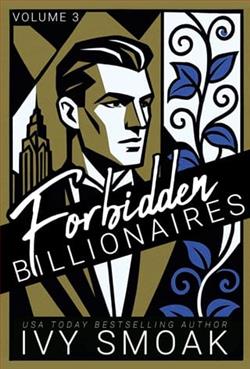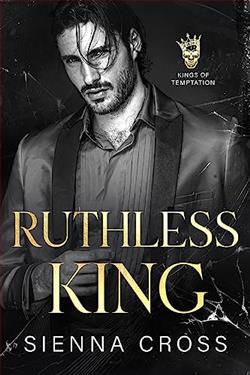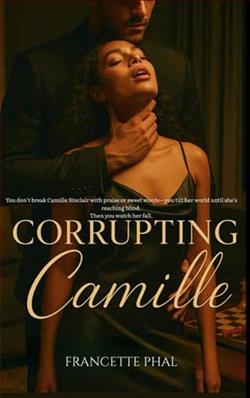Page 90 of Angel's Kiss
“What do you mean?” She could feel him peering at her curiously, but she didn’t want to meet his eyes for this confession.
“What is a career in opera, anyway? It’s not as if I could sing across Europe or the world like Patti or Jenny Lind. I couldn’t sing anywhere without you. And even here, it’s all so empty, all that applause from people who wouldn’t deign to smile at me in the street if we met. The joy I find in the music all comes from you.”
“I thought it made you happy,” Erik said softly, and Christine finally dared to look at him. “All the glory. You deserve it.”
“Don’t tell me that you enjoy sharing me with the world,” Christine countered and Erik gave a nod of agreement. “I’m not saying I want to give up, just that for me the music is more than my career. It’s you. And I do think you’d enjoy sharing me with a child even less.”
“I do think you’d be a good mother, if that’s worth anything,” Erik said, and it did make her smile, even as it also made her sad. Once again, she laid her head against his heart, listening to its steady rhythm as visions of the past filled her head. A warm smile, a sunny field of yellow flowers. And a grave.
“It scares me, you know, not being a mother, but giving birth. It killed my own mother.”
“I didn’t know that,” Erik said, soft and careful.
“I remember the day. It was the end of summer, when the world had started to turn orange and gold. It was so beautiful. I was playing outside and I remember thinking it would be so wonderful when I could play with my little brother or sister. They had names already picked. Nils if it was a boy, Aud if it was a girl. For my grandmother. And then I heard my mother screaming and...I knew something was wrong.” Erik’s arm tightened around her. “I wish I remembered her better. I wish I had taken the time to learn from her more. Before she was gone. Papa never talked about her, after that day. He never mentioned the little brother that died with her. We buried them in the same grave and left Sweden and everything that would remind him of what he’d lost behind. Everything but me.”
“At least you still had him.”
“I had part of him,” Christine replied. “Part of him went into that grave too. He never talked about her, but he talked about love. How it was never worth it to love something you might lose. That’s why he worked so hard to keep me close to him, even when I should have been growing up. He refused to lose me. And when I lost him...”
Christine closed her eyes on the tears that were suddenly there and closed her mouth to hold back the confession that she knew her father was right. It was stupid and useless to love, an invitation to pain and loss. She had contemplated that, and her father, often in the past few days. Especially after the nightmares where Buquet’s dangling body bore Erik’s face.
“Tell me a memory about your parents that brings you joy,” Erik said, pulling her back from the abyss of grief once again. “Don’t only think of the pain.”
“We’d go to the woods, in the summer, when the lingonberries and blueberries were ripe everywhere. We’d eat them right there, and they were so sweet when they had been in the sun. I remember the mess I made, all over my pretty white dress, so Mama wiped her hands on Papa’s shirt so we’d be even. We laughed so much.”
“Do you like the woods?” Erik asked fondly, and Christine opened her eyes to look up to the dark arbor of carved branches above them.
“I do. And I have gathered that you do too, given your bed is a forest.”
“I’ve always loved the wild places of the world,” Erik replied, his voice a low rumble in his chest as Christine rested against it. “Ever since I can remember, I’d run off into the woods. When I was older, living with the Romani, I’d do the same. I’d spend days in the forests and mountains where I never saw another soul and I could take off my mask without fear. No one screamed or ran away from me there.”
“You felt safe.”
“I wanted to run to the woods when my mother died, but they stopped me,” Erik confessed softly. “She loved green growing places too. I think she would have gone there.”
“I ran to the sea, when Papa died,” Christine whispered back.
“I miss the sea,” Erik said to her surprise. “My little lake is not the same.”
“What about the woods?” She asked, her eyes beginning to droop with sleep. “Is this enough or do you have woods to go to like you have your stars?”
“I...” Erik began but hesitated. Had she been more awake, it would have concerned her. “I go to theBois de Boulogne,” Erik told her after a long pause, and she found herself laughing softly.
“Do you watch the races at Longchamps?”
“I go at night, when all the respectable people have abandoned it and I can pretend it’s a real forest, not a park in a city. It can be quite convincing in the moonlight. I can show you if you don’t believe me.”
“Later this week, you’ll take me. I’ll need the distraction after going back into the real world,” Christine muttered and stifled a yawn.
“That’s not the real world, remember?” Erik said, his voice lilting, hinting at a song in his mind. “This is the real world. Right here. It’s the only one that matters.” And then he began to sing, and nothing mattered to Christine but that.
––––––––
Shaya found it surprisinglyeasy to get into rehearsals, as if Erik had left the doors of the Opera unlocked and open to him. Indeed it was possible that he had. Even so, Shaya did his best to remain hidden and unseen. A life as a detective and a spy made it second nature to him.
The talk of the Opera today was unsurprisingly about related topics: Joseph Buquet, Christine Daaé, and how the Ghost was part of their stories. It was accepted that the Ghost had been involved with Buquet’s demise, but the chatter was that Buquet had brought that revenge on himself. And that the Opera was better for it. All of this Shaya knew, but it was still interesting to hear how the story evolved.
“I heard Carlotta fainted when she heard,” someone said in a hall as Shaya listened.















